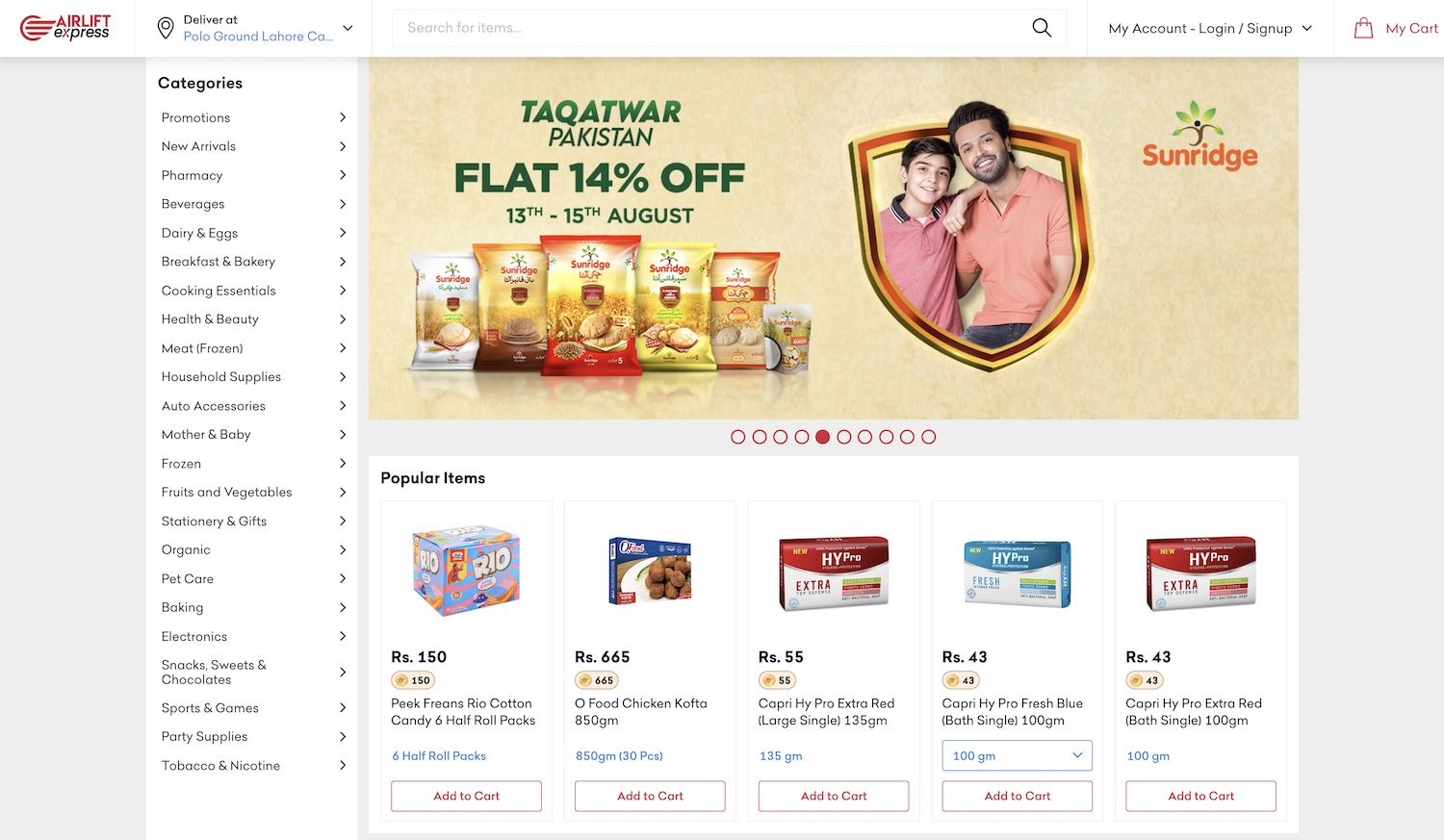A one-year-old startup that is attempting to build the railroads for e-commerce in Pakistan has just secured a mega round of funding in a major boost to the South Asia nation’s nascent startup ecosystem.
Airlift operates a quick commerce service in eight cities including Lahore, Karachi, and Islamabad in Pakistan. Users can order groceries, fresh produce, other essential items including medicines as well as sports goods from Airlift website or app and have it delivered to them in 30 minutes.
The startup said on Wednesday that it has raised $85 million in its Series B financing round at a valuation of $275 million. Harry Stebbings of 20VC and Josh Buckley of Buckley Ventures co-led the financing round, which is by far the largest for a Pakistani startup.
Sam Altman, former president of Y Combinator, Biz Stone, co-founder of Twitter and Medium, Steve Pagliuca, co-chairman of Bain Capital, Jeffrey Katzenberg, ex-chief executive of Disney and Quibi, and Taavet Hinrikus, founder and chief executive of TransferWise also participated in the new round, which brings the startup’s to-date raise to $110 million.
Stanley Tang, co-founder of DoorDash, Simon Borrero, founder and chief executive of Rappi, Baastian Lehman, founder and chief executive of Postmates, Quiet Capital and Indus Valley Capital also participated in the new round.
Airlift started as a transit business, building a service similar to Uber for air conditioned-buses in Pakistan. The startup quick amassed traction, clocking over 35,000 rides a day. And then the pandemic arrived, disrupting all mobility in the country.
That’s when Usman Gul, the founder and chief executive of Airlift, took the call to pivot to quick commerce, he told TechCrunch in an interview.
“This entire space of quick commerce is on the brink of global transformation. Airlift is in the forefront for leading that transformation in Asia and Africa,” he said. Gul said he plans to expand the service to many international markets in the next few months.

Airlift website
“Airlift’s early traction in Pakistan is a window into the future for how quick commerce will play out in the developing world,” said Altman in a statement.
Airlift today operates over 30 dark stores and processes hundreds of thousands of orders each month.
Gul said the startup has found that setting up these fulfillment centers is the most efficient way to serve the market. “The more middlemen you introduce in this chain between the items and the customers, you begin to compromise the experience,” he said.
Within the first twelve months of launch, Airlift has been able to reduce its cost of blended customer acquisition to $5 and unit costs to $2.50, it said.
Gul said the startup, which today employs over 100 people, plans to expand to more categories including electronics. “The idea is to expand to new categories and build the railroads to move consumer goods from manufacturers to consumers,” said Gul.
He left his job at DoorDash and moved back to Pakistan to start Airlift. “The idea was to create impact at the base of the pyramid and solve problems that would enrich millions of lives — for whom change is desperately needed. That drove my transition frankly,” he said.
“Transparently, when I first met Usman, I knew this was an entrepreneur who was going to create an industry-defining company. Humble, ambitious and strategic, Usman will be one of the great founders of this generation,” said Stebbings in a statement.
